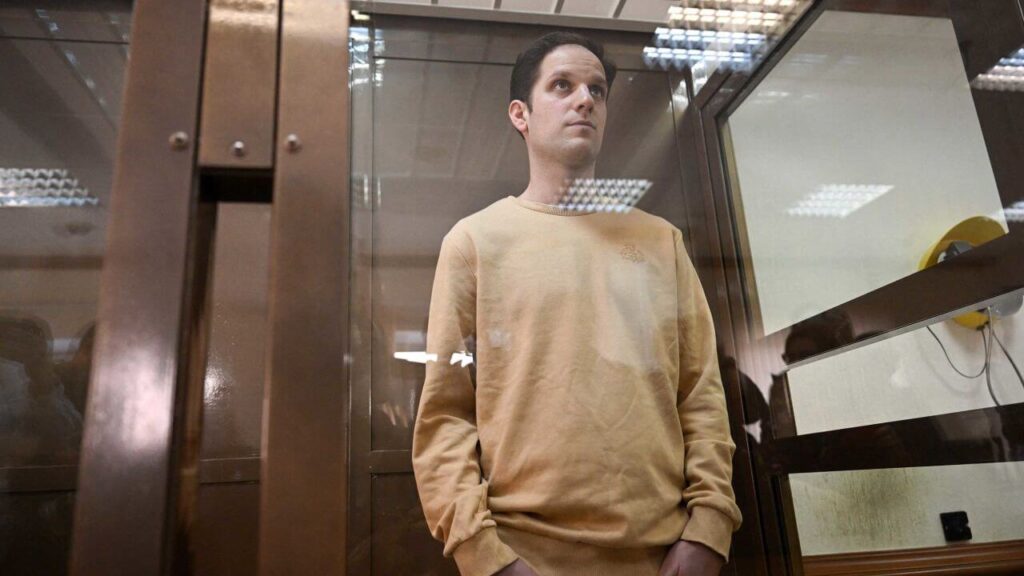Jack Riley ’24
On March 29, 2023, a journalist from the Wall Street Journal named Evan Gershkovich was detained by Russian authorities and charged with espionage. The U.S. Government insists, however, that Gershkovich is not a spy and was never hired by the Government. The U.S. also believes that Russia violated international law by failing to provide the American with diplomatic access. The Russian courts have denied Gershkovich’s appeal for house arrest and even extended his court date to keep him locked up for a longer period of time. Russia’s attack on this journalist also has serious implications for journalism as a whole.
The imprisonment of Americans by Russian authorities is not uncommon. In 2020 Paul Whelan, an American Marine veteran and businessman, was sentenced to 16 years in Russian prison for similar espionage charges. More recently, a professional basketball player named Brittney Griner was sentenced to 9 years in a Russian jail for drug smuggling but was later released via prisoner swap. Many suggest that Russia keeps Americans hostage to use as political bargaining chips in light of polarization between the two countries. Russia’s perception on the world stage has diminished since Putin’s failed invasion of Ukraine. What was once thought of as a quick territory grab has turned into a war of attrition. Therefore, many deduce that Russia would jump at any and every opportunity to command authority.
Some in the community question why the journalist was even in Russia to begin with. Connor Shanahan ’24 thinks, “When you mess around, you find out. He shouldn’t stick his nose where it doesn’t belong. I mean seriously, what do you expect? If Putin is going to invade Ukraine you don’t think he’ll throw a journalist in prison?”
However, this does not change the fact that, according to the United States Government, Gershkovic violated no international or Russian laws and therefore should not be detained. Sean Magee ’25 believes “While it is risky to report in Russia, it is still necessary for everyone across the world to have access to the truth.” Free speech is a vital aspect og journalism that allows it to carry out its duties for the general public. Therefore, returning the journalist must be a top priority for the American government.

Photo Courtesy of CNN
EA students are split on what actions the United States government should take. Gautam Ketkar ’24 expresses, “It’s sad and it’s unfortunate that journalism’s bounds are being confined due to the propaganda limits imposed by the Russian government. The U.S. needs to intervene and bring the journalist home.” Even with a publication like Scholium, it is critical that journalists maintain their freedom to express their viewpoints backed by factual evidence without fear of censorship or even imprisonment. Demonstrating a similar viewpoint, Kevin Groenhuysen ’24 remarks, “Russia is clearly bluffing about the charges. They just want leverage and in the process are ruining journalistic integrity. The U.S. needs to act now or suffer further consequences down the line.” Free speech is paramount to the fair process of journalism, so Russia’s attempt to silence voices is a dangerous precedent to set for the future of the field worldwide.
Returning Gershkovich to the United States is both immensely difficult and risky to pull off. An anonymous source commented, “I feel terrible for the journalist, but it’s impractical for the U.S. government to take action against Russia. Any attack on the Russian judicial system would be viewed as an attack on Putin’s authority. I just don’t think it’s worth starting a global conflict over one journalist.” The U.S. government will have to weigh the pros and cons as to whether action is warranted in this situation. Every day they stall, however, is one more day off of a supposedly innocent American’s life.